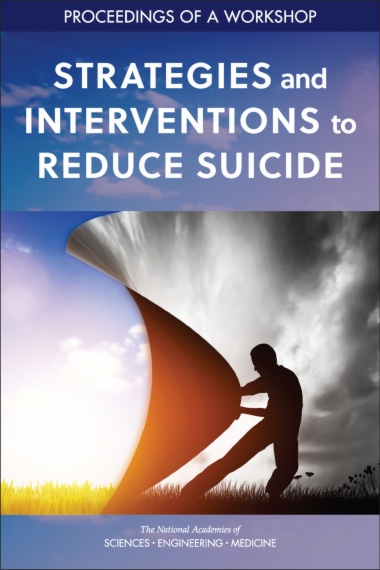

The persistent trends in suicide necessitate action among mental health care providers and payers, researchers, and community leaders. Health care settings provide an important opportunity for suicide intervention and prevention, but they cannot yet fully manage suicide risk because of a lack of training, knowledge gaps, and reimbursement challenges. School, workplace, and community-based interventions can help reduce the incidence of suicidal behavior, as can better access to care and reduced access to lethal means of suicide.
To better understand the strategies to improve access to effective interventions to prevent suicide, the Forum on Mental Health and Substance Use Disorders at the National Academies of Sciences, Engineering, and Medicine hosted a two-part virtual public workshop, Strategies and Interventions to Reduce Suicide, on June 22, 2021, and July 28, 2021. The first webinar examined the scope of the public health problem, discussed implementation of effective approaches for suicide prevention care, and addressed known barriers to health care access. The second webinar focused on building 9-8-8, the new nationwide emergency number designated to the National Suicide Prevention Lifeline. Participants discussed current crisis systems, gaps, challenges, and needs for marginalized populations. This Proceedings of a Workshop summarizes the presentations and discussions that occurred during the workshops.